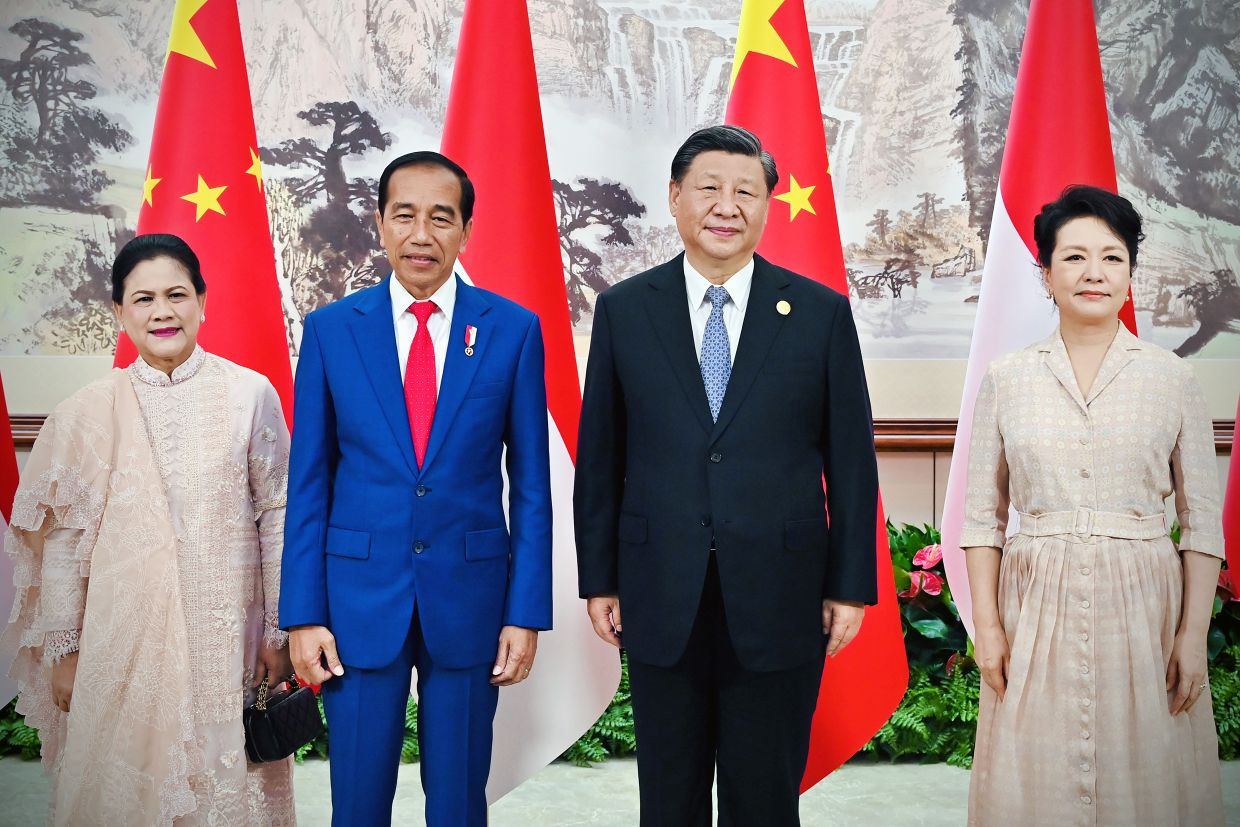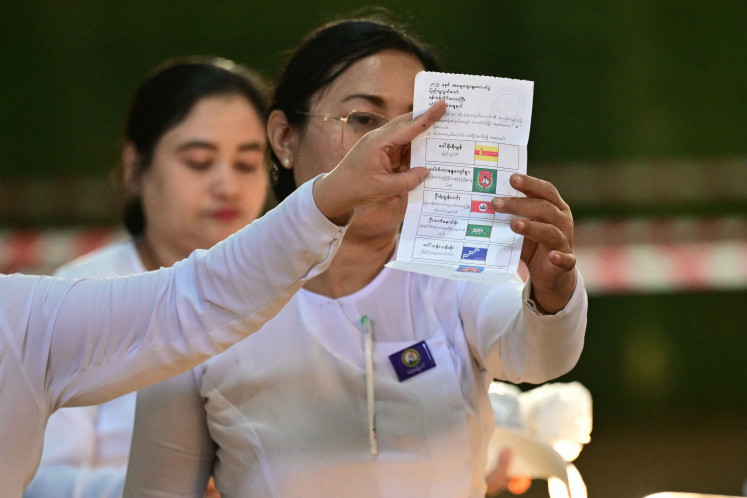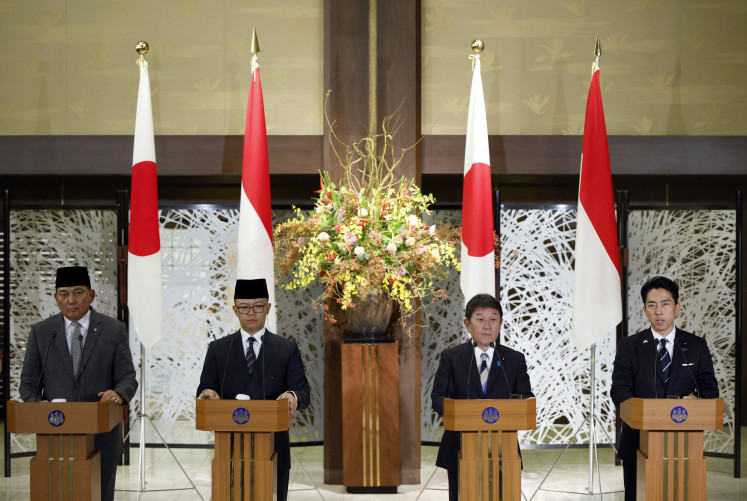Popular Reads
Top Results
Can't find what you're looking for?
View all search resultsPopular Reads
Top Results
Can't find what you're looking for?
View all search resultsFruits of ‘free and active’
The government has been forging a good relationship with China because it is Indonesia’s most important trading and investment partner and has developed an economic heft on par with the world’s other major powers.
Change text size
Gift Premium Articles
to Anyone
 President Joko “Jokowi” Widodo (second left) and First Lady Iriana Joko Widodo (left) pose with Chinese President Xi Jinping (second right) and First Lady Peng Liyuan in Chengdu, Sichuan, China, on July 27, 2023. Jokowi visited China at the invitation of President Xi to coincide with the 10th anniversary of the two countries’ strategic partnership. (Presidential Secretariat Press Bureau/Laily Rachev)
President Joko “Jokowi” Widodo (second left) and First Lady Iriana Joko Widodo (left) pose with Chinese President Xi Jinping (second right) and First Lady Peng Liyuan in Chengdu, Sichuan, China, on July 27, 2023. Jokowi visited China at the invitation of President Xi to coincide with the 10th anniversary of the two countries’ strategic partnership. (Presidential Secretariat Press Bureau/Laily Rachev)
T
he principle of “free and active” foreign policy has been at the core of Indonesia’s political ethos since the country’s earliest days, although there have been ups and downs in its implementation as geopolitical and economic realities have changed. While preserving this tenet as part of his constitutional mandate, President Joko “Jokowi” Widodo has brought a new emphasis on pragmatic and economically oriented diplomacy.
A case in point is his recent working visit to Chengdu, China, in which he made extensive efforts to secure as many investment pledges as possible – and appears to have had some success. The approach has worked in other countries as well.
The President’s economic diplomacy has yielded concrete results, especially from giant economies, including investment to promote growth and create jobs.
Jokowi also seems to want the country to play a greater role on the global stage, commensurate with its size. This may be motivated by the simmering great power rivalry in the South China Sea, the Taiwan Strait and the East China Sea.
Indonesia’s growing ties with China are just an example of how free and active foreign policy is worth the effort. The government has been forging a good relationship with China because it is Indonesia’s most important trading and investment partner and has developed an economic heft on par with the world’s other major economies, such as the United States and the European Union.
The question is how to make sure Indonesia can strike a fine balance in the exercise of its foreign policy doctrine.
Several ministers have said that during his two-day visit to China last week, President Jokowi managed to secure billions of dollars in new investment from Chinese corporations, thanks in part to his close relationship with Chinese President Xi Jinping.
Chinese state media reported that President Xi reiterated his support for Indonesia’s construction of the planned new capital Nusantara and the North Kalimantan Industrial Zone, as well the expansion of cooperation in other areas, such as in the electric vehicle industry, smart city technologies and the digital transformation of industry.
According to Foreign Minister Retno LP Marsudi, the two leaders discussed the strengthening of bilateral economic cooperation. They also agreed that their collaborations should be mutually beneficial, take the hiring of local workers into consideration and produce environmentally friendly products. All of this would be good for the Indonesian economy.
The challenge is how to maintain what has been achieved and anticipate the rapidly changing geopolitical and economic landscape as a result of competition among great powers.
Jokowi will end his second and final term in October next year. He leaves a foreign policy legacy that combines pragmatism and commitment to the constitutional mandate of creating world justice, peace and order.
His detractors at home and in the West may worry that Indonesia under Jokowi, who has now met with President Xi a record 10 times, is moving closer to China amid the great power rivalry, as Sukarno did with his Jakarta-Beijing axis during the Cold War.
International respect for and recognition of Indonesia remains intact, but efforts to induce Indonesia to take sides will never end. Economic incentives are the most effective tool to encourage Indonesia to abandon its free and active foreign policy.
The country’s achievements during its Group of 20 presidency last year were enabled by its free and active foreign policy. We condemned Russia’s invasion of Ukraine, but we did not succumb to the West’s pressure to boycott Moscow.
As the largest ASEAN member both economically and geographically, Indonesia is the de-facto leader of the regional grouping and bears the responsibility of promoting ASEAN centrality in shaping the Indo-Pacific into a more stable, peaceful and prosperous region.
As regional tensions are rising, Indonesia’s leadership could define the future of ASEAN and beyond. The country’s free and active foreign policy will be pivotal in that matter.










